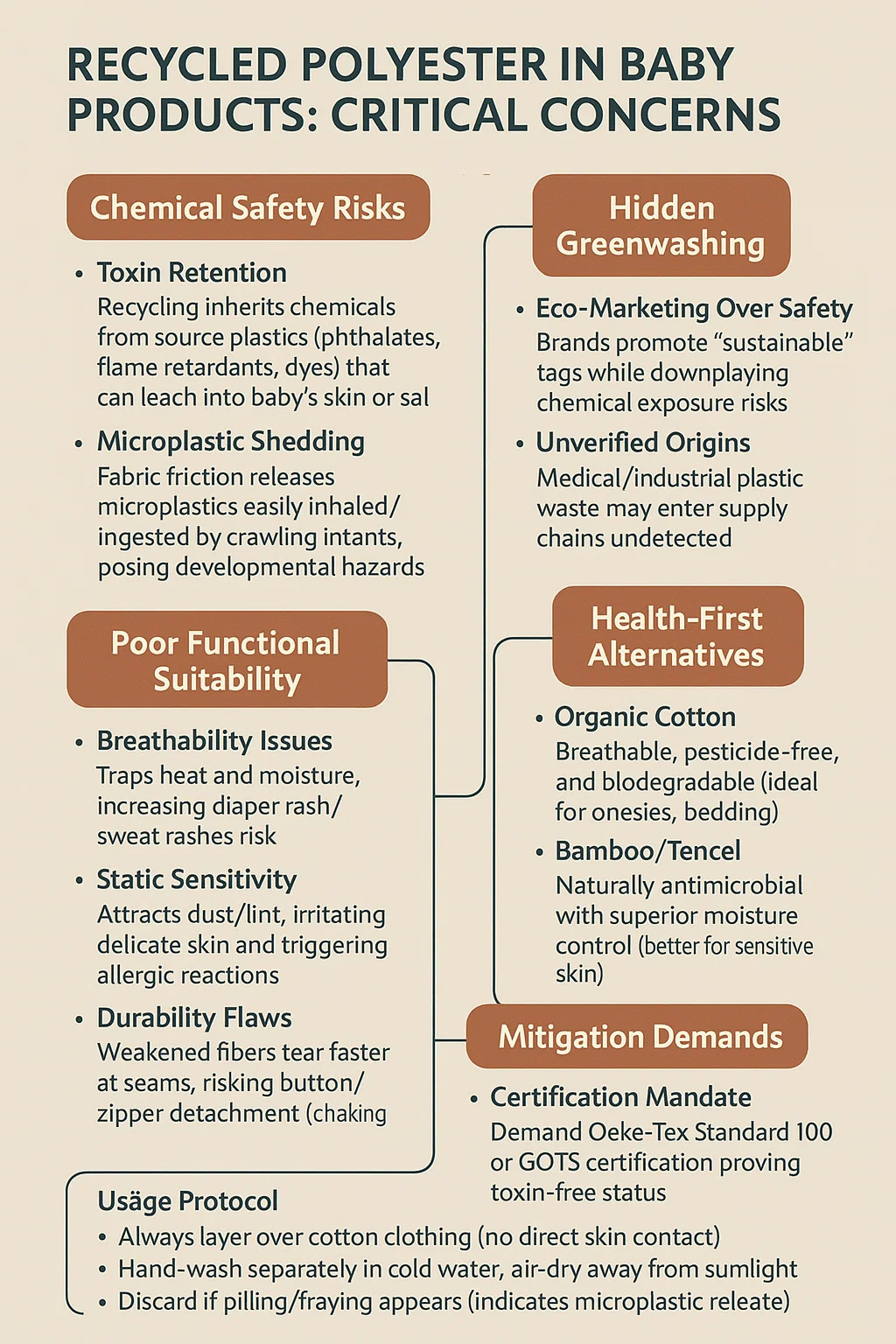Search by posts
Calendar
Industry News
 By Admin
By Admin
How are you feeling about recycled polyester in baby?
Recycled Polyester in Baby Products: Critical Concerns
1. Chemical Safety Risks
Toxin Retention: Recycling inherits chemicals from source plastics (phthalates, flame retardants, dyes) that can leach into baby's skin or saliva.
Microplastic Shedding: Fabric friction releases microplastics easily inhaled/ingested by crawling infants, posing developmental hazards.
2. Poor Functional Suitability
Breathability Issues: Traps heat and moisture, increasing diaper rash/sweat rashes risk.
Static Sensitivity: Attracts dust/lint, irritating delicate skin and triggering allergic reactions.
Durability Flaws: Weakened fibers tear faster at seams, risking button/zipper detachment (choking hazards).
3. Hidden Greenwashing
Eco-Marketing Over Safety: Brands promote "sustainable" tags while downplaying chemical exposure risks.
Unverified Origins: Medical/industrial plastic waste may enter supply chains undetected.
4. Health-First Alternatives
Organic Cotton: Breathable, pesticide-free, and biodegradable (ideal for onesies, bedding).
Bamboo/Tencel: Naturally antimicrobial with superior moisture control (better for sensitive skin).
Recycled Polyester Limits: Only acceptable in non-contact items (stroller covers, car seat shells) with cotton inner lining.
5. Mitigation Demands
Certification Mandate: Demand Oeko-Tex Standard 100 or GOTS certification proving toxin-free status.
Usage Protocol:
Always layer over cotton clothing (no direct skin contact).
Hand-wash separately in cold water; air-dry away from sunlight.
Discard if pilling/fraying appears (indicates microplastic release).


